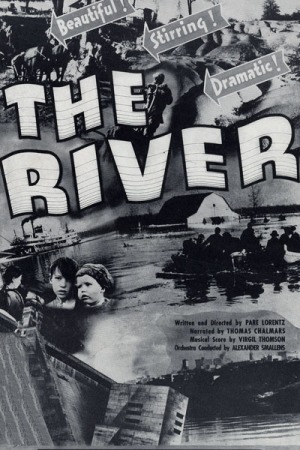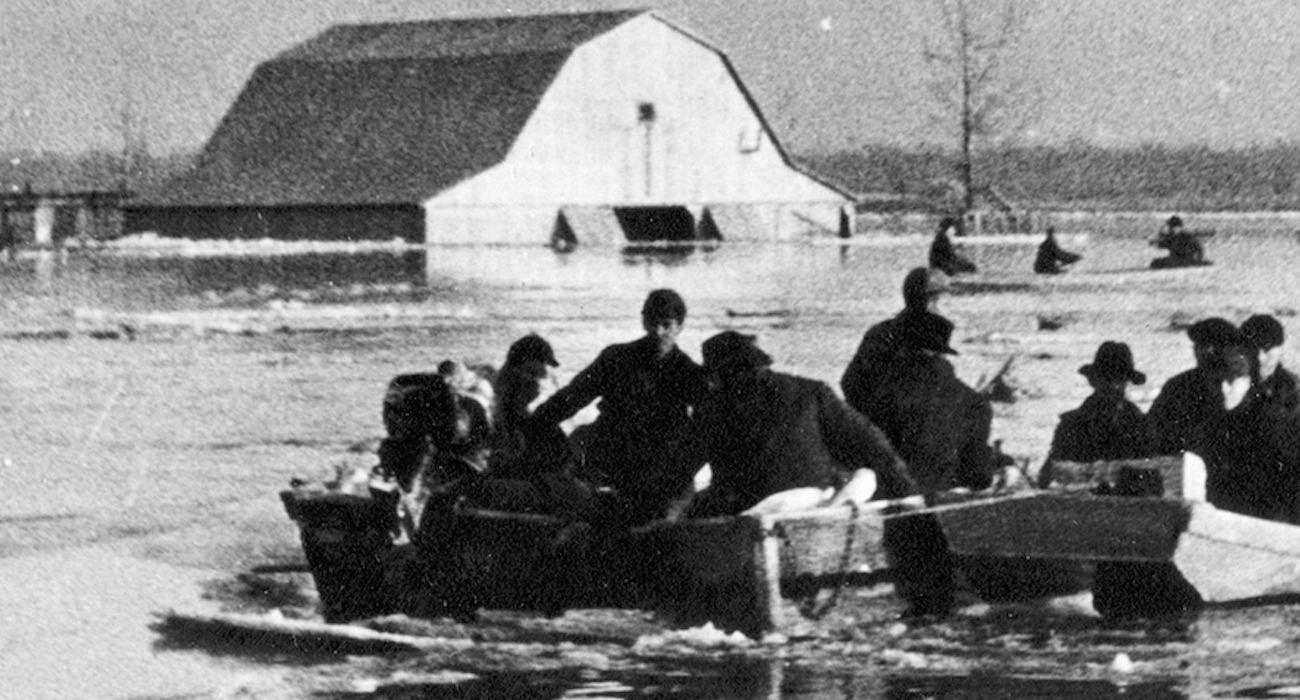
A review in brief
One of the acknowledged early masterpieces of the American documentary, 1938's The River isn't without its limitations on that front, among them being that it demonstrates that the heavy-handed advocacy essay quietly wandering by and pretending like it's for real totally an unbiased work of non-fiction was with us long before Michael Moore or his various flailing idiot right-wing analogues were even a daydream. Certainly, the part of the film that is absolutely the worst is also its most actively propagandistic: having spent most of its tightly-packed 31 minutes explaining that short-sighted land usage, mindless industrialism, and shoddy agricultural knowledge have turned the Mississippi flood plain into a deadly powder keg waiting for one really bad rain (a warning that subsequent history has amply proven to be right on the money), the film's final rhetorical gambit is to toss that aside with a hearty, "but you know what's cool? The Tennessee Valley Authority! Go FDR!"
Which I don't happen to disagree with, but it still leaves The River feeling like it changed its mind about itself in a dramatically incompetent way in the 11th hour. Still, what precedes that is, beyond doubt, one of the most thoughtful, poetic documentaries that you are ever likely to see - certainly, I can name no documentary that has anywhere near this amount of artful rhythm while also having such blunt, straightforward intentions. The repetition and echoes, both in narration and voiceover narration, and the contrast between gauzy, beautiful nature shots and horrifying images of the flooded Mississippi as a leveler of human civilization at a Biblical scale are astonishing still, many decades after the film's political moment in the sun has long since passed. Pare Lorentz, the writer and director, weaves the footage together with narrative clarity and aesthetic slipperiness that make it a truly engaging packet of information and historical imagery; everything about the film, especially Thomas Chalmer's forceful narration and Virgil Thomson's folksy score, contributes to the feeling that it something Important and Earnest, but also timeless in its effect.
The sweeping historical narrative Lorentz uses to hang his narrative is at least a touch reductive in its details (though would it not have to be, with this running time?), but the basic points of the story are surprisingly clear-sighted and modern. Technological progress can sometimes have terrible unintended consequences, Americans are, as a people, inclined to do the thing that sounds correct right now without figuring out what the ramifications will be, we're much better at fixing disasters than preventing them and their attendant human suffering in the first place. I would not call it cynical - the visual beauty, poetic editing, and ripe sense of '30s "c'mon, we can do it!" hopefulness all argue against that - but it's pragmatic and stern in a way that we don't typically think of from that time period (leastways, I don't). And that makes it interesting and informative, generations after it seems like it should be neither of those things.
Which I don't happen to disagree with, but it still leaves The River feeling like it changed its mind about itself in a dramatically incompetent way in the 11th hour. Still, what precedes that is, beyond doubt, one of the most thoughtful, poetic documentaries that you are ever likely to see - certainly, I can name no documentary that has anywhere near this amount of artful rhythm while also having such blunt, straightforward intentions. The repetition and echoes, both in narration and voiceover narration, and the contrast between gauzy, beautiful nature shots and horrifying images of the flooded Mississippi as a leveler of human civilization at a Biblical scale are astonishing still, many decades after the film's political moment in the sun has long since passed. Pare Lorentz, the writer and director, weaves the footage together with narrative clarity and aesthetic slipperiness that make it a truly engaging packet of information and historical imagery; everything about the film, especially Thomas Chalmer's forceful narration and Virgil Thomson's folksy score, contributes to the feeling that it something Important and Earnest, but also timeless in its effect.
The sweeping historical narrative Lorentz uses to hang his narrative is at least a touch reductive in its details (though would it not have to be, with this running time?), but the basic points of the story are surprisingly clear-sighted and modern. Technological progress can sometimes have terrible unintended consequences, Americans are, as a people, inclined to do the thing that sounds correct right now without figuring out what the ramifications will be, we're much better at fixing disasters than preventing them and their attendant human suffering in the first place. I would not call it cynical - the visual beauty, poetic editing, and ripe sense of '30s "c'mon, we can do it!" hopefulness all argue against that - but it's pragmatic and stern in a way that we don't typically think of from that time period (leastways, I don't). And that makes it interesting and informative, generations after it seems like it should be neither of those things.
Categories: documentaries, message pictures, political movies






